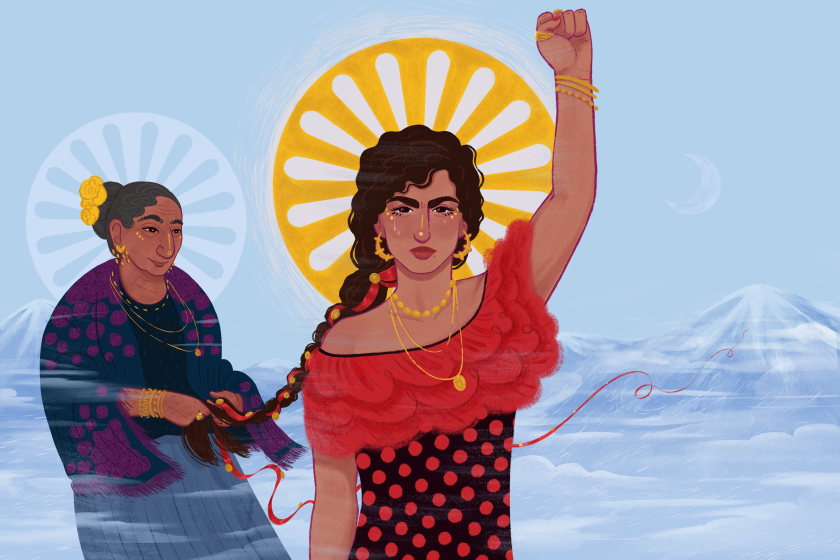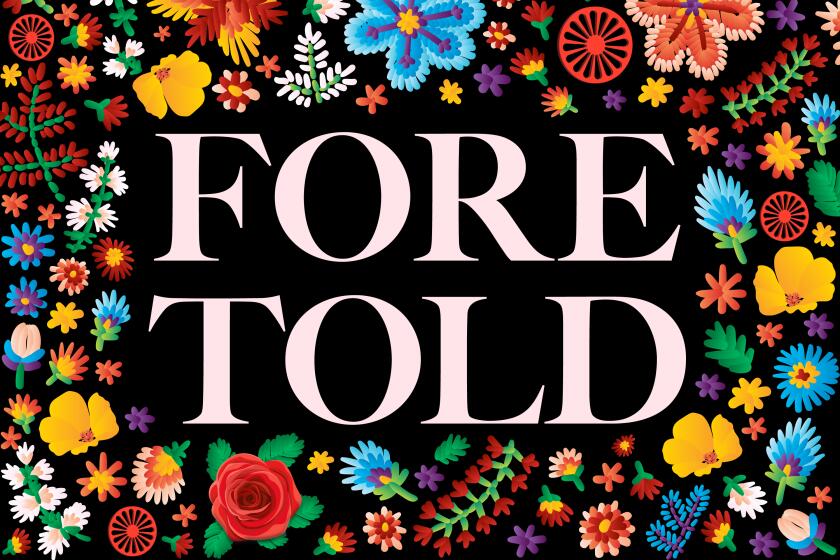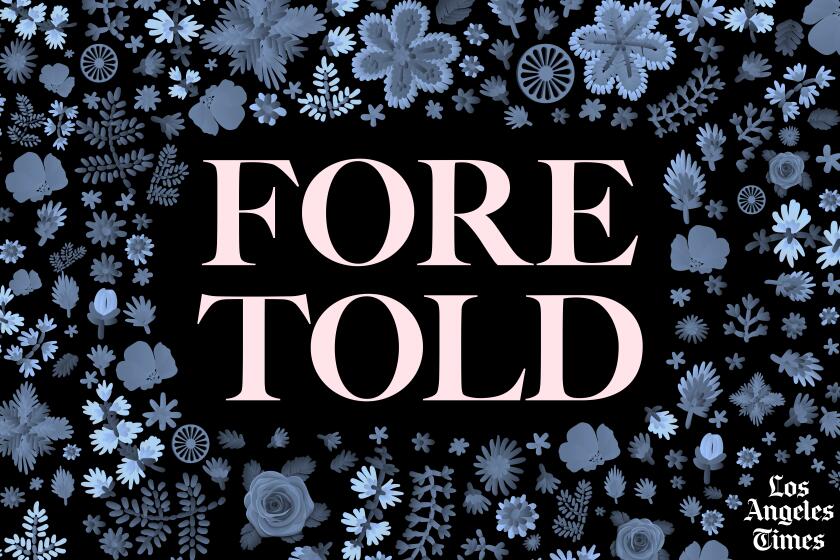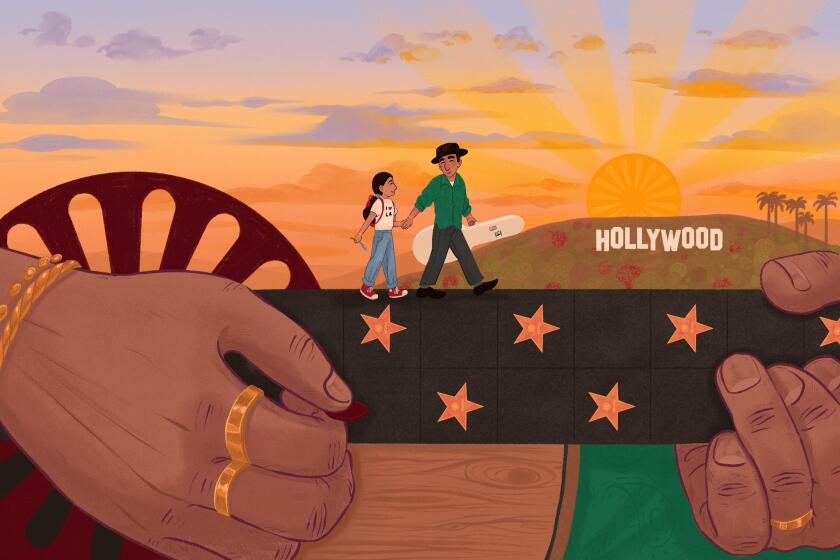L.A. County gas station signs banned Romani women. Community lashes back over racism
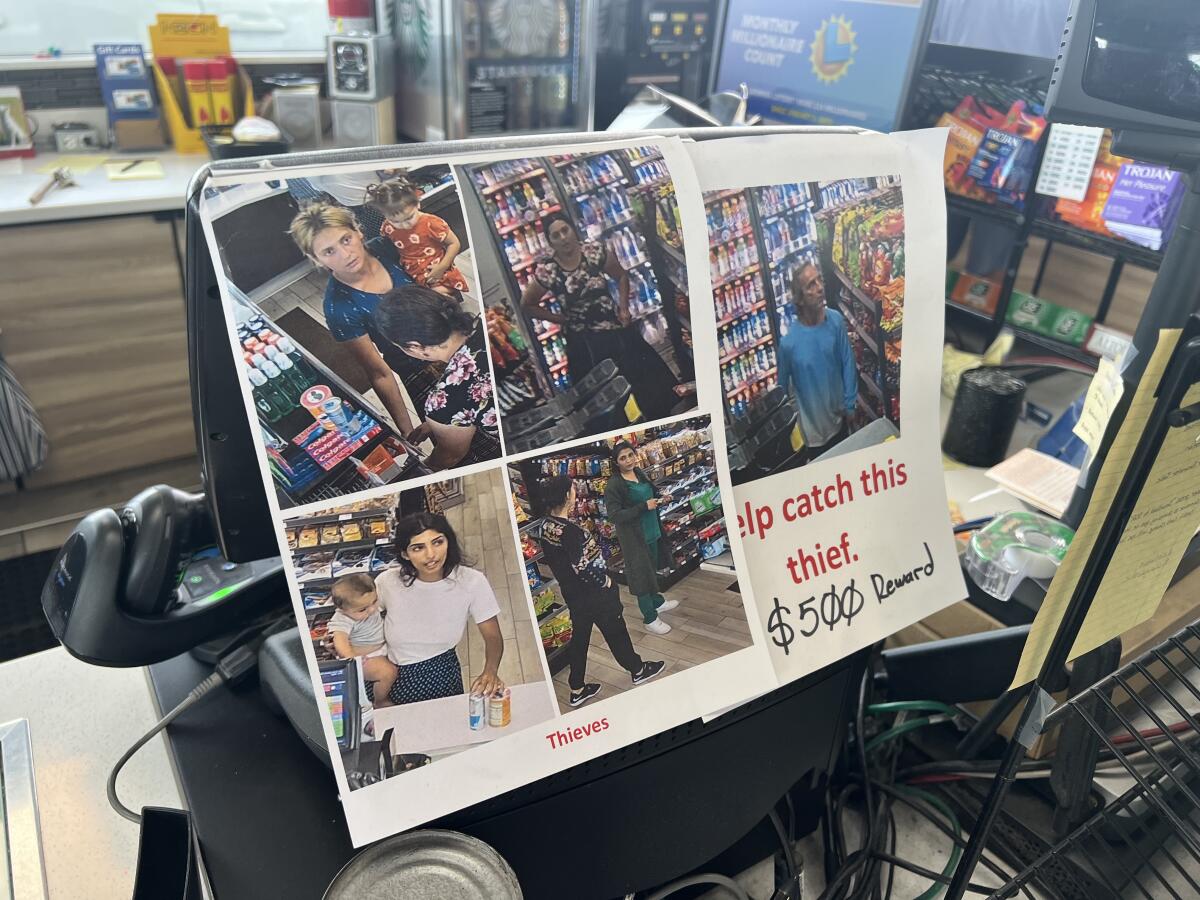
- Share via
The signs came down almost as fast as they went up: plain white sheets of paper, plastered to a Rowland Heights gas station door, prohibiting Romani women from entering.
“No Gypsy women in long shoplifting skirts allowed in the store,” the signs read, using a term the Romani community widely regards as a slur. One sign concluded in bright red font: “Nici un tigan” — “Not a single Gypsy” in the Romanian language. Once pictures of the signs surfaced online, backlash from Romani activists across the world came swiftly, prompting a response from Chevron and pledges to investigate from government officials.
For many Romani Americans, it’s the first time the American public is waking up to rampant discrimination against the community.
“Everybody was really upset and frankly shocked to see that from the Los Angeles area, it’s one of the areas that people view as diverse, accepting and a melting pot,” said Anya Redgewell, 46, a Romani woman who lives in Hemet. “If it had been directed at any other diaspora, someone would’ve tried to burn the building down.”
Seven signs dotted the entrances, exits and cash register of the Chevron gas station at Colima Road and South Nogales Street last week. They referred to a dozen people featured in photos as “drive off bandits” and one as a “graffiti tagger.” The papers referring to Romani people had been taken down. But at the cash register, a sign remained featuring pictures of three women wearing long skirts — a feature of traditional Romani clothing — under the heading “thieves.”
A Chevron employee at the station Thursday morning said she “had nothing to do with the situation” and asked not to be interviewed.
“Chevron is committed to fostering diversity and inclusion at all levels of our company. It is a cornerstone of our corporate values of high performance, integrity, trust, partnership, and protecting people and the environment,” said Chevron spokesperson Ross Allen in a statement, adding that the company is working with the owner of the independently operated station to “reinforce those values.”
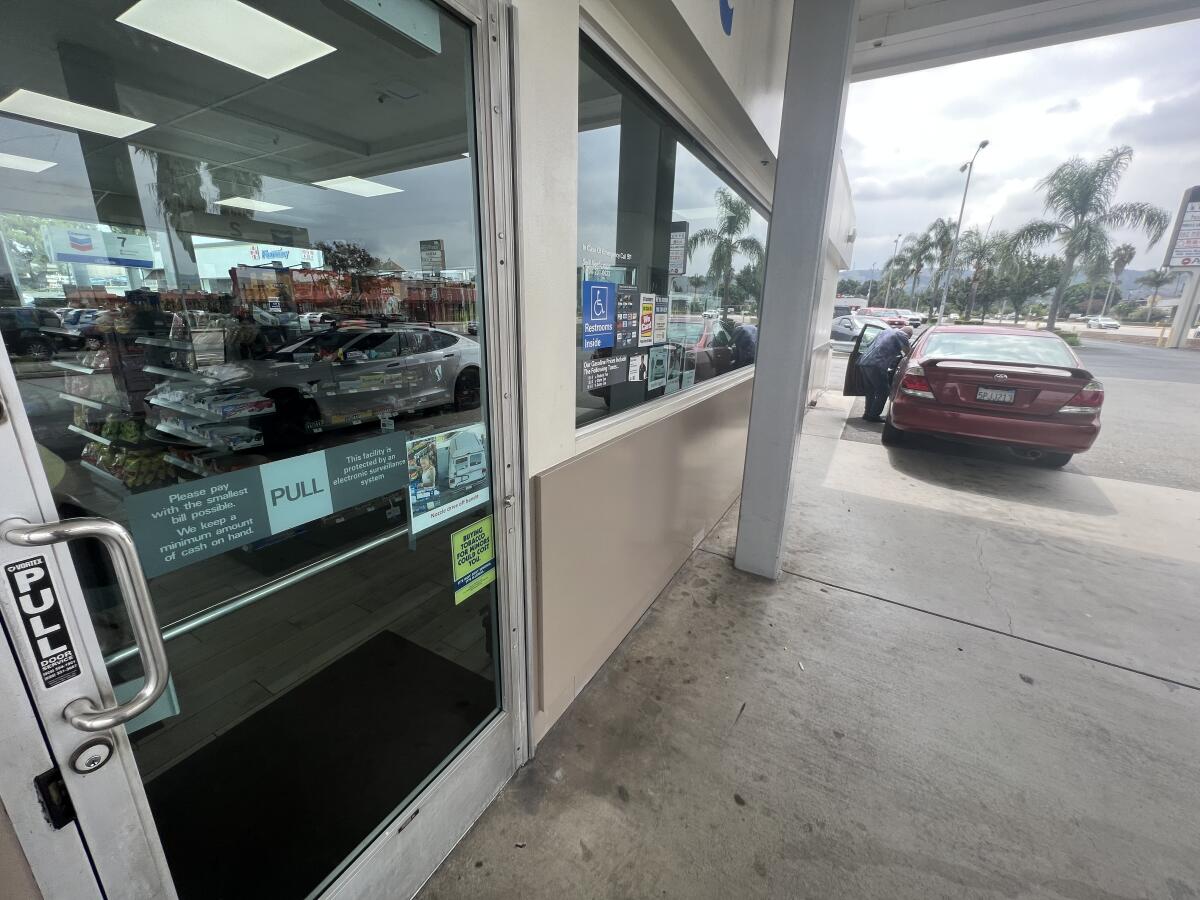
While the offending signs came down, the sentiment lingered for many Romani people in Los Angeles and across the country.
“Black people, white people, Mexican, Asian descents — all descents do stuff,” Donny Adams said. “You don’t have to just call out the Gypsies, particularly using that word.”
I love Romani heritage and symbols of our unity, including our flag. But celebrating our history of resistance doesn’t mean erasing our unique individual identities.
When Adams heard about the signs, the Los Angeles resident drove to the Chevron to see it himself. He said he walked into the store and struck up a conversation with the clerk, asking about the picture of women at the register.
“I played inconspicuous. I just kind of went in and bought a candy bar. … I didn’t steal it, I purchased it with my credit card,” Adams said. “She was talking and she was telling me that these … Gypsy women come in there with their babies and they just want to steal everything.”
Adams said that as he left, the clerk said to him, “Watch those kids!”
“I’m like what? I didn’t tell her that I’m a Romani man,” Adams said. “I walked in there by myself and she racially profiled me, told me to take care of those kiddies. That’s not fair. That didn’t sit right with me. It bothered me.”
The ‘Foretold’ podcast follows Paulina Stevens, who was raised to be a fortuneteller in a Romani family in California, as she redefines her identity.
Chris Stevens, who has one of the signs in his possession, said his cousin frequented the gas station for cigarettes and occasional drinks while living in the neighborhood for more than a dozen years. Stevens said his cousin was considering relocating after he saw the sign.
For the record:
7:42 p.m. Sept. 26, 2023An earlier version of this report misidentified Chris Stevens as Donny Adams.
“He feels like he’s a target, like he’s in the center and there’s no Gypsies here, no Gypsies there,” Stevens said. “He was saying … should I get out of here? What’s a better neighborhood?”
After the incident, Adams and Stevens created an Instagram account advocating for Romani rights. Romani activist Florian Tacorian also posted about the gas station signs on his popular TikTok account, reaching more than 160,000 viewers. Their posts spread quickly on social media.
“It literally reminds me of learning in history class about the 1950s,” said Tacorian, a 20-year-old business and acting student at the University of Florida in Gainesville. Tacorian said he’s accustomed to seeing such signs in his home country of Romania. “But seeing this in America, it’s just a different feeling.”
“This is a pretty diverse community where you see people from many backgrounds,” said Valerie Rios, 39, a dental assistant who works across the street from the gas station. “You never expect to see or hear about signs like that here.”
The podcast ‘Foretold’ follows the story of Paulina Stevens, a Romani American woman in California, as she navigates the consequences of her decision to leave her community and redefine her identity. In this episode, Paulina has a choice to make: Does she take her custody case to the Romani judicial system or turn to the American courts?
Originally from India, the Romani diaspora is rich with diversity, with many subgroups and variations in cultural norms. Still, some communities — including a large population in Southern California — adhere to traditional practices and dress, such as long, modest skirts for women.
“So if my wife — who wears a long skirt and who is not a criminal — and we go to a shopping center or store, she’s going to be pointed out as a Gypsy thief. For what? That’s not fair,” said Deny Dobobrov, the Chicago-based director of international relations for the World Roma Federation. He added that a similar sign popped up recently at a Chicago-area business but came down quickly after online backlash.
“It’s basically disgusting that our whole community and our whole ethnicity is blamed for the actions of some,” Dobobrov said.
The World Roma Federation has been in contact with the U.S. State and Justice departments over the gas station sign, Dobobrov said. L.A. County Supervisor Hilda Solis, who represents Rowland Heights, decried the sign as “deplorable.”
“It is apparent that the fight against hate is a continuous one. But make no mistake, I will not tolerate it,” Solis said in a statement, adding that the county “will conduct a full investigation into the racist sign.”
“The Romani people have made incredible contributions to our nation’s history, society and culture,” she added. “I am confident that with our collective perseverance, the goal of eradicating hate can be achieved.”
Growing up in Russia, my family wasn’t taught to be proud of our Romani roots. But the diversity of L.A.’s language and music changed us.
More to Read
Sign up for Essential California
The most important California stories and recommendations in your inbox every morning.
You may occasionally receive promotional content from the Los Angeles Times.
